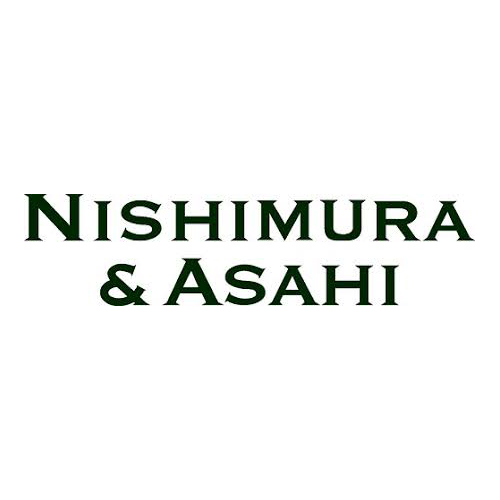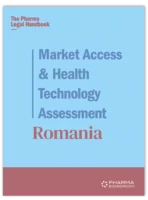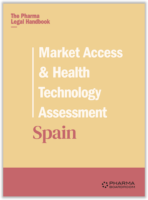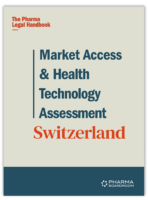Cannabinoid Drugs, Medicinal Cannabis and Opioid Drugs
Nishimura & Asahi / Japan
Keen to learn more about cannabinoid drugs, medicinal cannabis and opioid drugs in Japan? Read on! Prepared in association with Nishimura & Asahi, a leading law firm in Japan, this is an extract from The Pharma Legal Handbook: Japan, available to purchase here for GBP 149.
Cannabinoid Drugs
1. Are Cannabinoid Drugs authorized in your country?
No. In Japan, the utilisation of cannabis (all kinds) is severely restricted by two acts.
The first is the Cannabis Control Act, under which “Cannabis” is defined as the cannabis plant (Cannabis Sativa L.) and its products; provided, however, that the grown stalk of the cannabis plant and its products (excluding resin) and the seed of the cannabis plant and its products are excluded from this definition. The Cannabis Control Act states that any person who is not a cannabis handler (the term “cannabis handler” includes cannabis researchers) must not possess, cultivate, receive, or transfer cannabis, or make research use of it. Furthermore, it is prohibited for any person to perform any treatment with medicines manufactured from cannabis, to distribute cannabis for treatment purposes, and/or to receive treatment with any medicines manufactured from cannabis.
It is worth noting that this act does not prohibit the act of using cannabis (including the act of smoking cannabis) per se. This is due to the fact that before World War II, cannabis grass was widely cultivated in Japan, and even today cannabis grass is grown in some parts of Japan for its fibre, which is used in clothing; this leads to the possibility that farmers accidentally might inhale cannabis components dispersed into the air when they cut cannabis grass.
The second act is the Narcotics and Psychotropics Control Act. This Act aims to prevent any health and sanitation hazards caused by the abuse of narcotics (and psychotropics). Cannabis is not expressly covered in the act, but tetrahydrocannabinol (THC), a major cannabinoid present in cannabis, is regulated as a narcotic under the act, provided it is chemically synthesized.
2. What are the regulatory authorities with jurisdiction over Cannabinoid Drugs?
N/A.
3. Is there a specific regulatory framework for the authorization, pricing, and reimbursement of Cannabinoid Drugs?
N/A.
4. Which are the cannabinoid drugs that have received market approval to date?
N/A.
5. Who can prescribe Cannabinoid Drugs?
N/A.
6. Is there a list of doctors authorized to prescribe Cannabinoid Drugs?
N/A.
7. What approvals or notifications are required to prescribe Cannabinoid Drugs?
N/A.
8. Which organizations are authorized to sell/distribute Cannabinoid Drugs available?
N/A.
9. Is there a list of retailers/distributors authorized to sell Cannabinoid Drugs?
N/A.
10. Are there proposals for reform or significant change to the regulation of Cannabinoid Drugs?
In June 2021, after considering the recent trends in other countries and the medical usefulness of cannabis, a study council organised by the MHLW proposed that the production and application of medicines made from cannabis should be made possible.
11. When are they likely to come into force?
Despite the aforementioned proposal, at present there is no active debate in the Japanese Parliament concerning the production and sale of cannabis-based medicines.
Medicinal Cannabis
12. Is Medicinal Cannabis authorized in the country?
Any use of all types of cannabis is banned by the Cannabis Control Act, regardless of the name of the product or the purpose of its use, unless it is made from grown stalks or seeds of the cannabis plant (refer to Q68). One notable exception is cannabis researchers (persons who receive licenses from a prefectural governor and cultivate cannabis plants for the purpose of researching cannabis). Cannabis researchers are permitted to possess, cultivate, receive, and/or transfer cannabis, and to make research use of it. Additionally, cannabis researchers are allowed to import cannabis to Japan only if they satisfy certain requirements (refer to Q82).
13. What are the regulatory authorities with jurisdiction over Medicinal Cannabis?
N/A.
14. What is the regulatory framework for the authorization, pricing, and reimbursement of Medicinal Cannabis?
N/A.
15. How is the production and import of Medicinal Cannabis regulated and by which agencies/authorities?
Under the Cannabis Control Act, the import of cannabis to Japan is prohibited. However, cannabis researchers who have received authorisation from the MHLW to import cannabis are excluded from this prohibition.
16. What approval or notifications are necessary to produce or import Medicinal Cannabis?
Registration as a cannabis researcher is the first requirement. Moreover, to import cannabis, it is also necessary for the relevant cannabis researchers to receive authorization from the MHLW.
17. What is the regulatory framework for the marketing and distribution of Medicinal Cannabis?
N/A.
18. How can patients obtain Medicinal Cannabis?
N/A.
19. Who can prescribe Medicinal Cannabis?
N/A.
20. Is there a list of doctors authorized to prescribe Medicinal Cannabis?
N/A.
21. What approvals or notifications are required to prescribe Medicinal Cannabis?
N/A.
22. Where is Medicinal Cannabis available?
N/A.
23. Is there a list of retailers authorized to sell Medicinal Cannabis?
N/A.
24. Are there proposals for reform or significant change to the regulation of Medicinal Cannabis?
N/A.
Opioid Drugs
25. Are Opioid Drugs authorized in your country?
Some Opioid Drugs are authorized for sale as legitimate pharmaceutical products, based on the PMD Act. Additionally, in Japan, most opioid drugs are treated as narcotics and regulated under the Narcotics and Psychotropics Control Act. Therefore, as long as the requirements are satisfied, Opioid Drugs may be medically prescribed and distributed in compliance with the stringent regulatory framework established by those acts and the related regulations.
26. What are the regulatory authorities with jurisdiction over Opioid Drugs?
The central authority with jurisdiction over Opioid Drugs is the MHLW. Prefectural governors and the heads of the respective Regional Bureaus of Health and Welfare are also involved in issuing some licenses.
27. Is there a specific regulatory framework for the authorization, pricing, and reimbursement of Opioid Drugs?
Opioid Drugs can be authorized for sale in Japan once the relevant review process has been completed successfully, in accordance with the applicable requirements in the PMD Act and related regulations.
There is no specific regulatory framework for the pricing of and reimbursement for Opioid Drugs in Japan.
28. Which are the Opioid drugs that have received market approval to date?
Some Opioid Drugs already have received market approval. They include morphine, oxycodone, fentanyl, methadone, hydromorphone, codeine, and dihydrocodeine. Please note that these Opioid Drugs are designated as narcotics under the Narcotics and Psychotropics Control Act.
29. Who can prescribe Opioid Drugs?
Essentially, it is prohibited for anyone who is not a Person Licensed to Administer Narcotics to administer a narcotic, deliver a person a narcotic to administer, or deliver a prescription for a narcotic. A “Person Licensed to Administer Narcotics” means a person who has been licensed by the prefectural governor to administer narcotics, deliver a person a narcotic to administer, or deliver prescriptions for a narcotic in the course of business and as treatment for an illness. It is not permissible for a person other than a physician, dentist, or veterinarian to obtain licensing as a Person Licensed to Administer Narcotics.
30. Is there a list of entities authorized to prescribe Opioid Drugs?
No. There is no public list of licensed doctors authorized to prescribe Opioid Drugs as a Person Licensed to Administer Narcotics in Japan.
31. What approvals or notifications are required to prescribe Opioid Drugs?
Persons Licensed to Administer Narcotics may prescribe Opioid Drugs without additional approval or notification. Please note that a Person Licensed to Administer Narcotics must not administer a narcotic, deliver a narcotic to administer, or deliver a prescription for a narcotic for any purpose other than treatment for an illness.
32. Which organizations are authorized to sell/distribute Opioid Drugs available?
Essentially, it is prohibited for anyone who is not a Commercial Narcotics Handler to sell/distribute a narcotic. A “Commercial Narcotics Handler” means a Narcotics Importer, Narcotics Exporter, Narcotics Manufacturer, Formulator of Narcotic Pharmaceuticals, Manufacturer of Exempt Narcotics, Primary Wholesaler of Narcotics, Narcotics Wholesaler, or Narcotics Retailer.
33. Is there a list of retailers/distributors authorized to sell Opioid Drugs?
No. There is no public list of licensed retailers/distributors authorized to sell Opioid Drugs in Japan.
34. Are there proposals for reform or significant change to the regulation of Opioid Drugs?
No. There is currently no noticeable movement for reform of or significant changes to the regulation of Opioid Drugs.
35. When are they likely to come into force?
N/A.




































































